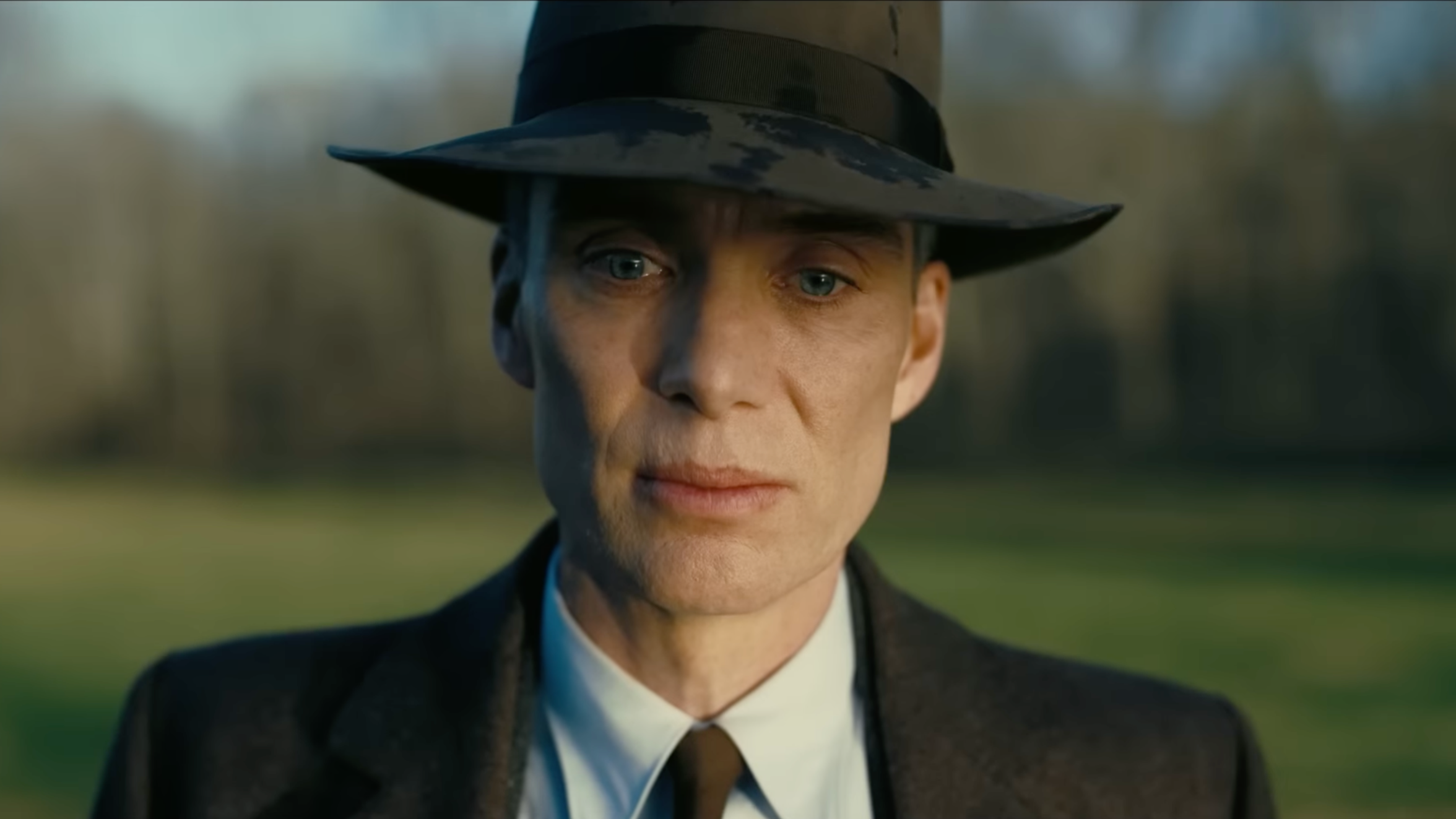Prime Video movie of the day: Oppenheimer is even better than the hype (and it had a kiloton of hype)
Dr Strange Lover, or how I learned to worry quite a lot about the bomb I made

Every day, we cut through the bottomless list of streaming options and recommend something to watch. See all our Netflix movie of the day picks, or our Prime Video movie of the day choices.
Full disclaimer: I went to see Oppenheimer four times in the cinema. I saw it on Barbenheimer day; I saw it projected in 70mm film on the largest IMAX screen in the UK; and in 70mm film in the largest IMAX in the US. So I am coming to this article as a strong Oppenheimer advocate (of the movie – the man, as we'll see, is rather more complex). It's a movie that's just the right amount of weird, is far pacier than its long runtime would suggest, and is not interested in easy answers to any of the questions it raises, yet still feels relatively focused at conclusive. Now that it's taking its place among the best Prime Video movies, it's well worth a revisit.
Writer/director Christopher Nolan takes a relatively straightforward approach of following the 'father of the atomic bomb' J Robert Oppenheimer through his life, from his university years up to dismantling of his career by political interests – which makes it overall not a difficult movie to follow – but it's not simply the events of his life. It's about Oppenheimer's perspective, through his particular mix of vulnerability and inscrutability, and this is interspersed with the perspective of his former boss, long after most of the film's events.
It means that we as an audience are either looking back at Oppenheimer through someone else's retrospective view of him, or we're seeing Oppenheimer's view on things as they're happening – and neither is the whole picture, we'll realise over the course of the movie.
It's unreliable narrators all the way down, and that's because the film isn't the story of the atomic bomb being made, it's sifting through all the elements that might drive Oppenheimer to create something he would advocate against so heavily, and looking for a nugget of truth. It's about what the bomb did to him professionally and personally, both before and after it it actually existed.
What makes it such a rich movie to rewatch is that there is no answer to the question why Oppenheimer behaves the ways he does, but there's a ton of evidence to chew over, and many conclusions to draw. We are following Oppenheimer's perspective, but appropriately for a quantum physicist, he's rarely able to accurately observe himself. He seems to be able to understand what he's done; or what he wants to do; but not both at the same time, which means that what he's doing is rarely based on solid ground.
Does he talk his way into leading the Manhattan Project because he wants it, or because he was excluded from it? Does he push to complete it after the Nazis surrender because the war in Japan needs a swift end, or because he can't stand the idea of not seeing this great work realised? The movie gives space for interesting questions about his character to rise throughout the whole movie, yet it still moves like a freight train, barrelling through decades of life at an exciting pace, while still providing each stage enough time to feel rich and characterful.
Cillian Murphy deserved all his awards as Oppenheimer, delivering a strong candidate for the most simultaneously charming and intensely frustrating man of his era. The movie is full of fantastic performances from great actors, often for only a few scenes, but all are absolutely crucial to the whole hanging together.
Sign up for breaking news, reviews, opinion, top tech deals, and more.
Nolan's most masterful directing touch is how finely he walks the line between scenes that both gripping and quietly devastating at the same time. They come as the crescendo from many steps of build up, they're full of energy, they're often a moment of triumph for someone… but they're also full of a darkness that only makes them more compelling.
The atomic test scene is the ultimate version of this. The whole movie has been building to it, it's the moment of greatest validation for the lead character and a host of other folks we've come to like, and it's thrilling because you simply don't know what you're about to see as the counter reaches zero. The moment it happens, you finally remember to exhale for the first time in five minutes… but it's not a triumph. The moment I realised I loved Oppenheimer, after actually being fairly cool on it the first time I saw it, was when I realised why the atomic test scene happens two thirds of the way through the movie, rather than at its climax. In a hyper-traditional three-act structure, the second act will often feature a major climax… that culminates in the hero's lowest point. Oppenheimer does not just the depict the dangers of the atomic bomb, it's structured around them.
This isn't a movie about being the man who won the second world war. It's a movie about being the man who created the weapon that could eliminate all of humanity at any moment. And living with that.
You might also like…
- 3 movies new to Prime Video with over 95% on Rotten Tomatoes
- New trailer for Prime Video and Peacock's historical epic Those About To Die looks like Gladiator crossed with Game of Thrones
- The Boys season 4 is bold, brash, and brutal – but I’m worried the hit Prime Video show might be losing its superpowered edge

Matt is TechRadar's Managing Editor for Entertainment, meaning he's in charge of persuading our team of writers and reviewers to watch the latest TV shows and movies on gorgeous TVs and listen to fantastic speakers and headphones. It's a tough task, as you can imagine. Matt has over a decade of experience in tech publishing, and previously ran the TV & audio coverage for our colleagues at T3.com, and before that he edited T3 magazine. During his career, he's also contributed to places as varied as Creative Bloq, PC Gamer, PetsRadar, MacLife, and Edge. TV and movie nerdism is his speciality, and he goes to the cinema three times a week. He's always happy to explain the virtues of Dolby Vision over a drink, but he might need to use props, like he's explaining the offside rule.
